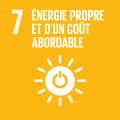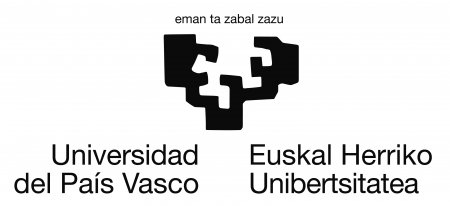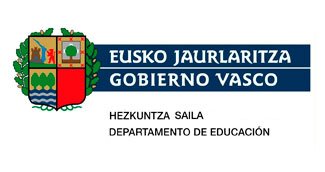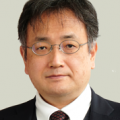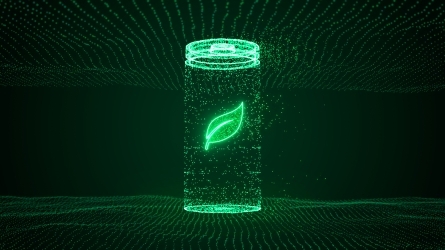
Organic Battery Days 2023
The Organic Battery Days is a yearly reference event for organic battery experts. Topics include design and synthesis of organic electroactive materials, study of these materials in various electrochemical systems (e.g., rechargeable batteries, flow cells), and electrolytes for organic electrodes.
Description
Welcome to the 6th Organic Battery Days at the University of the Basque Country on June 7–8, 2023. This continues a series of Organic Battery Days events that started in Uppsala, Sweden in 2017, and it has been subsequently held in Tianjin (China), Jena (Germany), Waseda (Japan) and Houston.(USA). This year the Organic Battery Days will be held for the first time in Donostia-San Sebastian, Spain.
Organic Battery Days is a yearly reference event for organic battery experts. In this meeting we will discuss the most recent developments in the field of organic batteries, such as the design and synthesis of organic electroactive materials, study of these materials in various electrochemical systems (e.g., rechargeable batteries, flow cells), and electrolytes for organic electrodes. This meeting will be held in person.
Our graduate students and young professionals have generously volunteered their time and talents to help plan and implement this meeting. They have provided invaluable thought and initiative to assure you will have a meaningful visit and stand ready to assist you during your stay.
We look forward to an inspiring meeting that will generate innovative ideas in this exciting field of research and development.
Sincerely,
Nerea Casado & David Mecerreyes
OBD2023 Chairs
Local Organizing Committee
- David Mecerreyes (POLYMAT-UPV/EHU)
- Nerea Casado (POLYMAT-UPV/EHU)
- Edurne Gaston (POLYMAT-UPV/EHU)
- Tijs Lap (POLYMAT-UPV/EHU)
- Nicolas Goujon (POLYMAT-UPV/EHU)
- Gabriele Lingua (POLYMAT-UPV/EHU)
Scientific Advisory Committe
- Daniel Brandell (Uppsala University, Sweden)
- Ho Seok Park (Sungkyunkwan University, Korea)
- Ji Eon Kwon (Korea Institute of Science and Technology, Korea)
- Jun Chen (Nankai University, China)
- Kenichi Oyaizu (Waseda University, Japan)
- Masaru Yao (AIST, Japan)
- Matthieu Becuwe (Université de Picardie Jules Verne, France)
- Philippe Poizot (Université de Nantes, France)
- Ulrich S. Schubert (Friedrich Schiller University Jena, Germany)
- Yan YAO (University of Houston, USA)
Pre-congress workshop
The workshop “From R&D activities in next-generation batteries to industrial exploitation” will take place as satellite event to the Organic Battery Days 2023 on Tuesday 6th June at the Joxe Mari Korta Center in San Sebastian, Spain. Organised by IMDEA Energy together with POLYMAT, this event will be held in the framework of the POLYTSORAGE-ETN European project.
This half-day workshop is addressed to PhD students and young researchers. It willl be dedicated to shed light into skills for industrial researchers including IPR issues, commercial exploitation of results, entrepreneurship and creation of start ups, leadership skills in industry, industrial research management, transfer of technology, and more. The workshop includes an excellent line-up of international speakers with broad experience in these topics.
Participants to the OBD 2023 are welcome in the workshop. Those willing to attend need to register separately via the following link:
Objectifs
The objective of this meeting is to strengthen communication and cooperation among experts from academic organizations, research institutes and manufacturing companies, as well as to exchange knowledge and experience on the most recent developments in the field of organic batteries. The meeting will discuss the design and synthesis of organic electroactive materials, study of these materials in various electrochemical systems (e.g., rechargeable batteries, flow cells), and electrolytes for organic electrodes. This meeting will be held in person.
CALL FOR ABSTRACTS - EXTENDED DEADLINE
OBD2023 abstract submission remains open for two types of presentation: oral presentation and poster. Extended closing date is March 30th, 2023.
To submit your proposal, please download the abstract template provided, fill it in and attach it to your abstract submission form indicating your preferred presentation type.
Successful presenters will be notified by mid April. Presenters must register by the end of April to have their presentations confirmed.
Presentation times
It is very important to limit presentation times depending on the modality assigned to your participation:
- Plenary Conferences: 45 min (including 5 min of questions)
- Invited Lectures: 25 min (including 5 min of questions)
- Oral Lectures: 25 min (including 5 min of questions)
- Flash type poster presentations: 3 minutes, questions are not allowed
Instructions for Flash poster presentations
Flash poster presentations comprise flash oral presentation (3 minutes) and the traditional exhibition of your work in a paper poster (the measurements of the poster will be A0 (80 cm width and 110 cm high).
For the preparation of the flash oral presentation, it is important to keep in mind that you are shortly presenting the work of your poster in a maximum of 4 slides including the title slide. The goal of the flash presentation is to attract the attention of the audience to visit your poster and ask you questions there. Please respect the 3 minutes duration of your presentation due to the need to accommodate a high number of participants in the session.
Activité s'adressant à
- Étudiants universitaires
- Professionnels
Directeurs

David Mecerreyes Molero
POLYMAT
Prof. David Mecerreyes, Ikerbasque Research Professor at the University of the Basque Country (Spain), is the Head of the Innovative Polymers Group at POLYMAT (www.polymat.eu) , and currently the Scientific Vice-Director of this research centre. His research focuses on the synthesis and application of poly(ionic liquid)s, conducting polymers and redox polymers for energy and bioelectronics. His contributions to research in these fields have been recognized with several awards, including an ERC Starting Grant in 2011 and a Research Excellency Award in 2020 by the Spanish Royal Chemical Society (RSEQ). He is the co-author of >340 publications in peer-reviewed journals. He serves a member of the international advisory boards of ACS Macroletters, ACS Applied Polymer Materials, Polymers and Materials Horizons.
Nerea Casado Pérez
POLYMAT
Dr. Nerea Casado is an Ikerbasque Research Fellow at POLYMAT, University of the Basque Country. Dr. Nerea Casado earned her B.Sc. in Chemistry and M.Sc. in Applied Chemistry and Polymeric Materials from the University of the Basque Country, Spain. In 2017, she defended her PhD Thesis at POLYMAT Institute under the supervision of Prof. David Mecerreyes on Innovative Poly(3,4-ethylenedioxythiophene) materials for energy storage. During her career, she has conducted several secondments at Energy Centers such as Deakin University (Australia) and CIC EnergiGUNE (Spain). Her research interests focus on the synthesis and application of functional polymer composites, having mixed ionic-electronic conductivity and electroactivity, for energy storage and bioelectronics applications. She has published 34 research papers, 3 book chapters and edited 1 book. She is also coauthor of 3 patents in collaboration with Toyota Motor Europe.
Conférenciers
Matthieu Becuwe obtained his PhD in organic and hybrid chemistry at the Université of the Littoral, France, in 2009. After two postdoctoral stays dedicated to the synthesis of i) SiO2/TiO2-based hybrid materials for iron’s sensing (LRCS-UPJV, Amiens) and ii) calcium silicates nanomateirals for concrete applications (LCMCP-UPMC, Paris), he joined the LRCS as assistant professor in 2011 and is now professor (since 2022). His researches are oriented towards the elaboration of organic-based materials for energy storage applications like electroactive molecular materials or hybrid/polymeric composite for Li-ion battery electrodes and electrolytes respectively. https://www.lrcs.u-picardie.fr/equipe/permanents/detail/matthieu-becuwe/
I finished my PhD in 2016 on the topic of application of organic materials into magnesium metal anode batteries under supervision of prof. dr. Robert Dominko. After my PhD, I expanded my research interests into the field of Al and Ca metal anode batteries, where organic cathode can be, similarly as in Mg, used to surpass limitations of inorganic cathode hosts. At the same time, I try to apply various characterization techniques (operando ATR-IR, SEM-EDS, XRS, EIS) to elucidate the electrochemical mechanism governing the performance of multivalent anode-organic cathode batteries.
Daniel Brandell received his PhD in 2005 at Uppsala University, Sweden, on a thesis comprising Molecular Dynamics studies of polymer electrolytes. After post-doctoral studies in Estonia and the USA, he returned to Uppsala. In 2016, he was appointed Professor in Materials Chemistry. Since 2020, he coordinates the research centre “Batteries Sweden”. In his research, he combines computational chemistry spanning DFT calculations, MD simulations and FEM electrochemical modelling with experimental activities, with a clear focus on Li-ion batteries and other next-generation battery chemistries such as Na-ion, solid-state systems, Li-Sulfur, Organic batteries, etc. He has published >200 papers in the field and holds several research grants, including an ERC consolidator grant from 2017 on polymer electrolytes.
Birgit Esser is full professor of Organic Chemistry at Ulm University, Germany. She obtained her Ph.D. in 2008 at the University of Heidelberg. After postdoctoral studies at the Massachusetts Institute of Technology as Leopoldina fellow from 2009–2012, she joined the University of Bonn, Germany, as Liebig and later Emmy-Noether junior group leader. From 2015–2021 she was associate professor of Molecular/Organic Functional Materials at the University of Freiburg, Germany. Her research focusses on organic electrode materials for batteries, including post-lithium batteries, the synthesis of hoop-shaped, conjugated π-systems as well as small molecule semiconductors and photocatalysis.

Jean Francois Gohy
Université catholique de Louvain
After a PhD in anionic polymer synthesis at the University of Liège (Belgium) and a post-doc on supramolecular polymers at the Eindhoven University of Technology, J.-F. Gohy started his scientific career at the Université catholique de Louvain in 2003 where he is now Full Professor and President of the IMCN institute. His topics of interest are stimuli-responsive nanoobjects from block copolymers, nanostructured polymer films, light-responsive polymers, stimuli-responsive gels, redox polymers for organic radical batteries and solid polymer electrolytes.

Nicolas Goujon
Dr. Nicolas Goujon is a Marie Skłodowska-Curie Fellow at POLYMAT, University of the Basque Country. In 2016, he started his journey in the energy storage world as an associate research fellow in the research group of Prof. Forsyth (Deakin University Australia), working on solid polymer electrolyte for lithium metal batteries. Then, Dr. Nicolas Goujon joined POLYMAT (Spain) in 2019, where he was leading the redox polymer team for energy storage application of the research group of Prof. Mecerreyes. He is currently involved in the supervision of three PhD students, who are working on organic electrode materials for applications in batteries or pseudo-capacitors. He have co-authored 25 articles in peer-reviewed journals, 1 patent and 1 Book Chapter. His current h-index is 13 with an overall 791 citations.
Zhongfan Jia is an Associate Professor of Chemistry at Flinders University, Australia. He graduated from Fudan University with a PhD in Polymer Chemistry and Physics in 2007, followed by a postdoctoral position in the Centre for Advanced Macromolecular Design (CAMD) at the University of New South Wales. From 2009 to 2020, he was a senior research fellow at the Australian Institute for Bioengineering and Nanotechnology (AIBN), the University of Queensland. He is a recipient of the Australian Research Council Future Fellow and Advanced Queensland Industry Fellow, and later was a Lecturer at the University of New England. His research interests include polymer chemistry, electrochemistry, biomaterial, catalysis, and energy storage.
Ji Eon Kwon received his BS degree in Materials Science and Engineering (MSE) from Seoul National University (SNU) in 2006. He obtained his Ph. D. degree from SNU under the guidance of Prof. Soo Young Park with a thesis on a special class of organic fluorophores showing Excited-State Intramolecular Proton Transfer (ESIPT) in 2014. He was appointed Korea Presidential Post-doc. Fellow in 2016 with a grant for a 5-year research project to develop organic electrode materials for future batteries. He is currently a Senior Researcher at Korea Institute of Science and Technology (KIST).
Jodie L. Lutkenhaus is holder of the Axalta Chair in the Artie McFerrin Department of Chemical Engineering at Texas A&M University. Lutkenhaus received her B.S. in Chemical Engineering in 2002 from The University of Texas at Austin and her Ph.D in Chemical Engineering in 2007 from Massachusetts Institute of Technology. Current research areas include polyelectrolytes, redox-active polymers, energy storage, and composites. She has received recognitions including World Economic Forum Young Scientist, Kavli Fellow, NSF CAREER, AFOSR Young Investigator, and the 3M Non-tenured Faculty Award. Lutkenhaus is the Deputy Editor of ACS Applied Polymer Materials and a member of the U.S. National Academies Board of Chemical Sciences & Technology.
Rebeca Marcilla received her PhD in Chemistry in 2006 from the University of the Basque Country (UPV/EHU) in the field of ionic liquids and polymers with application in electrochemistry and nanotechnology. After a postdoctoral stay at the University College London she joined CIDETEC (Centro de Tecnologías Electroquímicas, Donostia-San Sebastian). In 2010 she moved to the Unit of Electrochemical Processes IMDEA Energy (Madrid) and in 2015 she became Senior Researcher. During her fruitful scientific career, she has acquired proven experience in advanced materials for energy storage (eg. ionic liquids, polymer electrolytes, redox-active polymers, etc) and in next-generation batteries including organic batteries and redox flow batteries). As a result, she has co-authored 7 patents (1 of them licensed to a private company) and published more than 115 articles, achieving an h-index of 44. She has supervised 12 PhD thesis (6 presented+6 on-going) and several postdoctoral researchers. In 2017, she was awarded with a ERC Consolidator Grant to develop Membrane-free Redox Flow Batteries. Dr. Marcilla is member of the Governing Board of the Electrochemistry Group of the Spanish Royal Society of Chemistry (GEE-RSEQ).
Vijay Murugesan is a staff scientist and group leader for the Materials Sciences group in PNNL. His research focuses on charge/mass transfer across heterogeneous interfaces and materials. He frequently partners with the DOE Office of Science, Basic Energy Sciences program, as well as the DOE Office of Electricity to explore chemical stability and resiliency of energy storage materials. Currently, he is serving as focus area lead for the Joint Center for Energy Storage Research, DOE‘s energy storage hub where he leads a multidisciplinary team of scientists across national labs and academic institutions. Murugesan has published more than hundred peer-reviewed articles in the field of energy storage.
PhD, Waseda University (1995), Lecturer, Waseda University (1997), Associate Professor, Tokyo University of Science (2003), Associate Professor, Waseda University (2007), Professor (2012-present).
Patil pursued his PhD from University of Liege, Belgium in 2017, under the supervision of Prof. Christine Jerome. Then he joined IMDEA Energy Institute in November 2017 as a postdoctoral position in the group of Electrochemical Processes Unit. Since January 2023, he holds a Senior Assistant Researcher position. His research interests focus in the field of organic electrochemical energy storage, with special enforcement to emphasize on an integrated approach of synthetic polymer chemistry (redox-active polymers and conducting polymers) and applied electrochemical technologies (metal-polymer and all-polymer batteries). He is also recipient of Juan de la Cierva-formacion, incorporación and HE-MSCA Postdoctoral Fellowships.
Philippe Poizot is currently a Professor of Chemistry at Nantes University (IMN-CNRS, Nantes, France), and has been working on electrochemical systems for the past 25 years. He obtained a Ph.D. degree in Materials Science at the University of Picardy Jules Verne (LRCS, Amiens, France) in 2001. Appointed later Associate Professor in Chemistry at the same University, he proposed in 2007 the concept of “renewable” batteries by promoting novel electrode materials based on redox-active organic compounds deriving from biomass. His current research topics are mainly focused on rechargeable batteries and the development of organic batteries. He is a recipient of the Bronze Medal of the French Society for Encouragement and Progress (2002) and honorary Member of the Institut Universitaire de France. He is author of more 100 publications and co-inventor of 14 patents.
Dr. Yan Yao is Hugh Roy and Lillie Cranz Cullen Distinguished Professor at the University of Houston. He received his Ph.D. in Materials Science and Engineering from UCLA in 2008 and completed postdoctoral studies at Stanford University after two years industrial experience. He began his career at the University of Houston in 2012, and was promoted to Full Professor in 2020. His research focuses on developing innovative materials and chemistries from low-cost, abundant resources, and he is also recognized for his work on an in situ diagnostic platform for solid-state batteries. He has received numerous awards, including the Top 1% Highly Cited Researchers, Senior Faculty Research Excellence Award, Office of Naval Research Young Investigator Award and the Cullen College of Engineering Professorship. He is a senior member of the National Academy of Inventors and IEEE, a Fellow of the Royal Society of Chemistry.
Eduardo obtained his PhD on asymmetric organocatalysis at UPV/EHU under the mentorship of Prof. Jose Luis Vicario. As a graduate student he visited Berkeley for a short stay at the Toste Group to learn about fluorination chemistry in 2015. After his PhD. he joined CIC energiGUNE as a postdoctoral researcher in the Polymer electrolytes research line. Since then, he was worked in the development of solid-state lithium batteries and aqueous organic redox flow batteries. He is currently leading the Redox Flow Batteries research line and coordinates the activity on organic materials for secondary batteries, such as conductive salts, active materials, and additives.
Ulrich S. Schubert is full professor, head of the Laboratory of Organic and Macromolecular Chemistry (IOMC), and director of the Center for Energy and Environmental Chemistry Jena (CEEC Jena) at the Friedrich Schiller University (FSU), Germany. His main research activities in the area of polymers and energy deal with redox-active polymeric materials as active materials for polymer-based batteries. Ulrich S. Schubert is founder and director of the Jena Center for Soft Matter (JCSM) and the Center for Energy and Environmental Chemistry Jena (CEEC Jena). Besides Ulrich S. Schubert’s academic research activities (>1’100 articles with >50’000 citations, H-index 105 SCOPUS 06/2020)), he holds >30 patent applications and has initiated four spin-off companies.

Hui Zhan
College of Chemistry &Molecular Sciences, Wuhan University
Hui Zhan received her PhD degree from Wuhan University in 2002, then worked there as a Lecturer, she became a professor in 2014. During the tens of years of research, she focused on the electrochemical energy storage, and had over 60 peer reviewed publications in organic electrode material and non-aqueous battery.
Tarifs inscription
| Matrícula | jusqu'au 07-06-2023 |
|---|---|
| 300,00 EUR |
Lieu de l'événement
Miramar Palace
Pº de Miraconcha nº 48. Donostia / San Sebastián
Gipuzkoa
Miramar Palace
Pº de Miraconcha nº 48. Donostia / San Sebastián
Gipuzkoa
Objectifs de développement durable
Chez UIK, nous voulons contribuer à la réalisation des objectifs de développement durable (ODD) 2030. Pour ce faire, nous avons identifié les objectifs auxquels nos programmes contribuent. Vous pouvez vérifier les objectifs ci-dessous.
L'Agenda 2030 est le nouvel agenda international de développement adopté en septembre 2015 par les Nations Unies. Cet agenda se veut un outil pour favoriser le développement humain durable sur toute la planète. L'éradication de la pauvreté, la réduction de l'inégalité et de la vulnérabilité et la promotion de la viabilité constituent ses principaux piliers. Il s'agit d'une chance unique de transformer le monde jusqu'en 2030 et de garantir les droits de l'homme à tous.
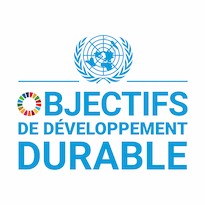
7 - Énergie propre et d'un coût abordable
Garantir l'accès de tous à des services énergétiques fiables, durables et modernes, à un coût abordable. Questions clés : accès universel, hausse de la proportion d'énergies propres, efficacité énergétique, recherche, promotion de l'investissement en infrastructures énergétiques et technologies propres, services énergétiques modernes et durables.
Plus d'informations